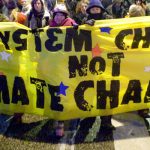British Columbians approve of province’s COVID-19 response & want more equitable, sustainable economy post recovery—regardless of party affiliation
Jul 20, 2020
The coronavirus pandemic has put governments and societies around the world to the test as they confront what is both a public health and economic crisis—one that clearly is not going away anytime soon. BC has fared well to date in containing the spread of the virus, and stands out among Canadian provinces with a… View Article











